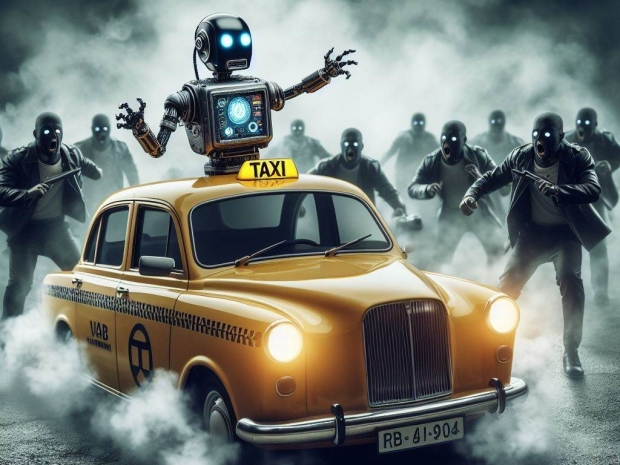In just over a week, a Waymo car smashed into a closing gate as it left the University of Southern California's campus; the next day, another hit a cyclist in San Francisco.
Later that week, a mob of people trashed and torched one of its cars. Days later, the company announced a voluntary recall of its software for an incident involving a pickup truck in Phoenix.
Although it happened three months ago, the Post reports that after the first contact between the vehicles, a second Waymo car bumped into the pickup truck a few minutes later.
This string of mishaps - none of which caused serious injuries - came after Waymo's main rival, General Motors-owned Cruise, recalled its fleet of driverless cars last year.
Despite fierce opposition from local officials, Waymo is now the only company trying to expand 24/7 robotaxi service around California.
MIT Mobility Initiative senior fellow David Zipper said Waymo had become the standard-bearer for the entire robotaxi industry for better or worse.
“While Waymo's incidents are nowhere near what Cruise is accused of doing, there is a crisis of confidence in autonomous vehicle firms related to safety right now," Zipper said.
The California Public Utilities Commission (CPUC) delayed deciding whether Waymo could expand its service to include a part of a major California motorway and Los Angeles and San Mateo counties, pending "further staff review," according to the regulator's website.
While Waymo said the delay is a part of the commission's "standard and robust review process," the postponement comes as officials from other places fear becoming like San Francisco - where self-driving cars have disrupted emergency scenes, held up traffic and annoyed residents who are learning to share public roads with robot cars... Zipper said it is a notable difference that "the firms are saying the technology is supposed to be a godsend for urban life, and it's pretty striking that the leaders of these urban areas don't want them," he said.
Waymo offers ride-hailing services in San Francisco and Phoenix and some free rides in Los Angeles.
It cites a December report from Waymo estimating that over 11.4 million kilometres of testing, there were 17 fewer injuries and 20 fewer police-reported crashes "compared to human drivers with the benchmark crash rate would have driven the same distance in the areas operated."




